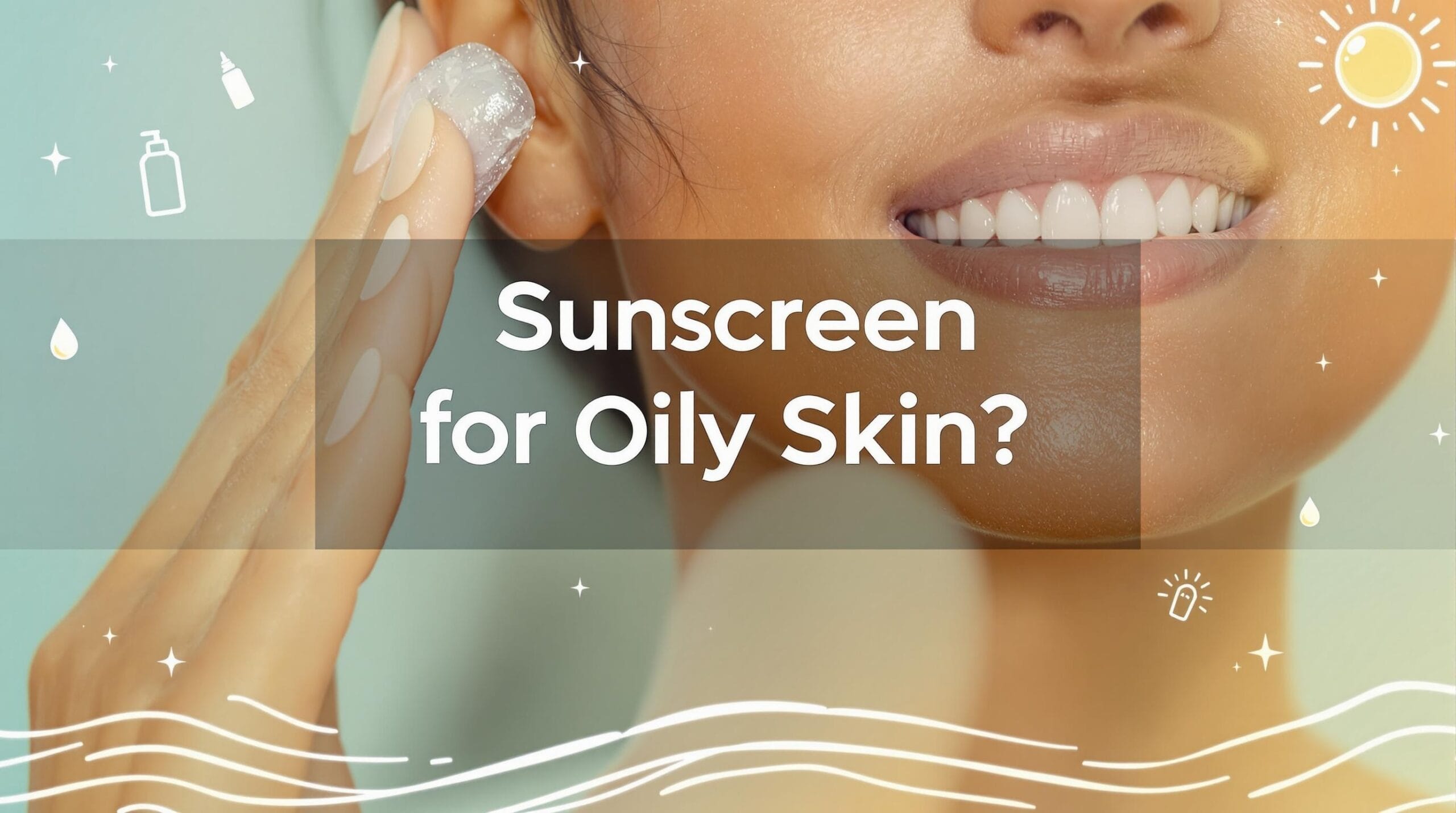
Oily skin is identified by an excess production of sebum, leading to a shiny appearance, enlarged pores, and potential acne. Statistics show that around 50-60% of people have oily skin at some point in their lives. This skin type often faces unique challenges such as breakouts and shiny skin, which can make daily skincare routines complex.
Understanding how sunscreen fits into this picture is crucial. Many individuals with oily skin worry that using sunscreen could worsen their condition. This hesitation can lead to inadequate sun protection, exposing skin to harmful UV rays. Without proper sunscreen, oily skin can suffer from skin damage and premature aging. Knowing how to choose and apply sunscreen can significantly improve skincare routines for those with oily skin.
The Myth of Sunscreen: Oily Skin’s Worst Enemy?
Many people believe sunscreen aggravates oily skin, leading to breakouts and a greasy feel. This myth can deter individuals from using essential sun protection. In reality, some sunscreens are specifically formulated to target these issues. It’s important to separate fact from fiction. For example, the idea that all sunscreens clog pores is misleading. Non-comedogenic options are available that do not contribute to acne.
Moreover, using sunscreen can actually prevent further skin problems. While some individuals may experience irritation from specific ingredients, this is not the case for all formulas. Knowing which products to choose can help individuals reap the benefits of sun protection without adverse effects. An informed choice can transform the sun protection experience into a positive part of a skincare routine.
Why Sunscreen is a MUST for Oily Skin
Sun protection is critical, regardless of skin type. The sun emits UV rays that can lead to skin damage, hyperpigmentation, and increased sebum production, which may worsen oily skin issues. Without sunscreen, oily skin types risk developing further complications, such as acne scars or uneven skin tone.
Wearing sunscreen daily helps prevent these problems while providing protection from harmful rays. It is not only about prevention; sunscreen can also create a more balanced appearance on the skin. Considering the risks associated with sun exposure and the advantages of daily use is paramount for maintaining healthy skin. Prioritizing sunscreen as part of a daily routine is essential for everyone, especially those with oily skin.
Choosing the Right Sunscreen for Oily Skin
When searching for the right sunscreen, look for oil-free or non-comedogenic labels. Gel-based textures are often best for oily skin, as they provide hydration without the excess shine. Many brands offer lightweight formulas that dry matte, leaving no greasy residue. Products containing ingredients like zinc oxide or niacinamide can help regulate oil production without clogging pores.
Additionally, always check the SPF level. An SPF of 30 or higher is recommended for ample protection. Understanding the specific ingredients that work well for oily skin can guide effective product selection. By prioritizing tailored formulations, individuals with oily skin can enjoy the benefits of sunscreen without added concerns.
Applying Sunscreen: The Oily Skin Routine
Proper application techniques enhance sunscreen effectiveness for oily skin. Start with clean skin; apply a small, even layer of sunscreen as the last step in your skincare routine. It’s advisable to wait a few minutes before applying makeup to allow the sunscreen to set. This can reduce any greasiness.
Consider using a makeup sponge or brush for a lightweight application. This technique ensures minimal product build-up and a more matte finish. If you’re using a chemical sunscreen, apply it generously, ensuring full coverage on all areas of exposed skin. This method will maximize protection without feeling heavy.
Expert Tips: Sunscreen Hacks for Oily Skin
To enhance the efficacy of sunscreen for oily skin, consider using a setting spray with SPF. This additional layer can boost sun protection and freshen your look throughout the day. Another tip is to carry oil-absorbing sheets to manage shine while on the go. This can help reduce excess oil without removing sunscreen. Additionally, remember to reapply every two hours during sun exposure for continuous protection.
Common Concerns: FAQs About Sunscreen and Oily Skin
Can sunscreen cause breakouts? Using non-comedogenic options helps prevent this concern. Many are formulated specifically for acne-prone skin.
How often should I reapply? Reapply sunscreen every two hours, more frequently if sweating or swimming.
Is SPF enough protection for oily skin types? Yes, proper SPF use is vital for all skin types, including oily skin, to shield from UV damage.
The Bottom Line: Embracing Sunscreen for a Healthy Shine
Sunscreens play a vital role in every skincare regimen, including those for oily skin types. Understanding options and debunking myths enables individuals to take control of their sun protection habits. By prioritizing sunscreen use, you can maintain a healthy, radiant complexion while minimizing potential skin problems.
Everyone deserves the protection that sunscreen offers. So prioritize it in your daily regimen and enjoy the benefits of healthy skin while embracing the glow of sun protection.
Additional Resources & Recommendations
For those seeking more information on the best sunscreens for oily skin, reputable brands have embraced the needs of this skin type. Check reliable dermatological sources for further reading. A few recommended products include:
- EltaMD UV Clear Broad-Spectrum SPF 46
- CeraVe Hydrating Mineral Sunscreen SPF 30
- Neutrogena Ultra Sheer Dry-Touch SPF 100
Discover more about effective sunscreens by visiting resources that cater specifically to your skin needs.
The Ultimate Trick to Effortlessly Remove Sunscreen from Your Face Revealed! >>>







